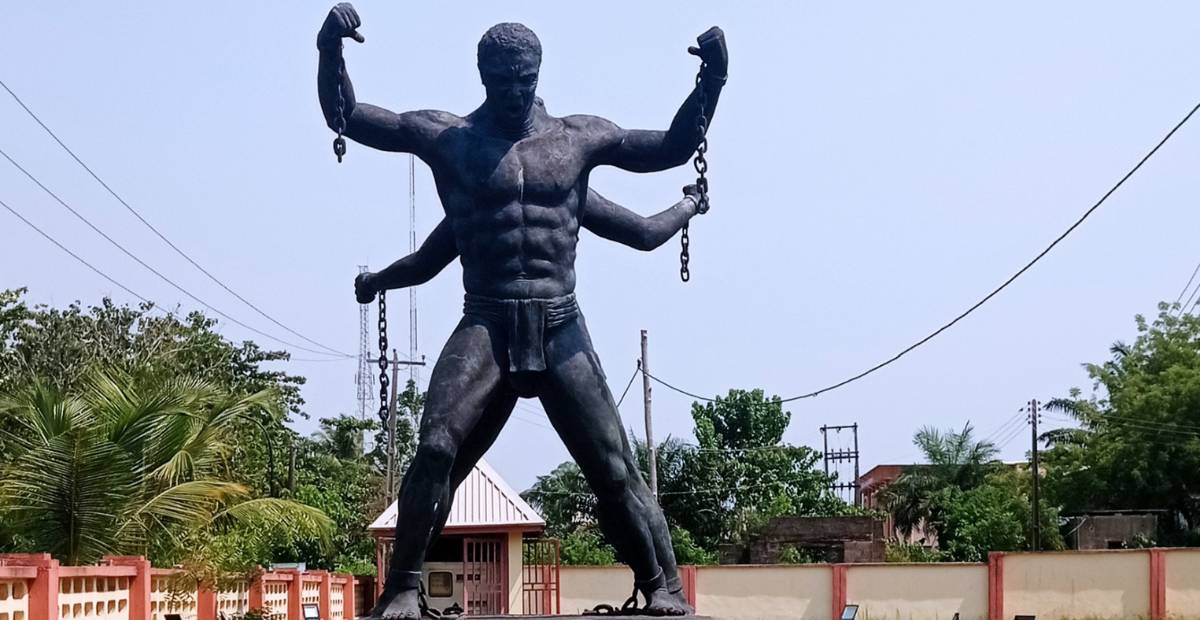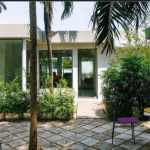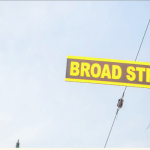Lagos is a city rich in history, art, and culture. One of the best ways to learn about its past and traditions is by visiting its cultural museums. These museums help keep the stories of the people, their way of life, and their creativity alive. They display important artifacts, artworks, and historical items that show how Lagos and Nigeria have changed over time.
Whether you are interested in history, traditional crafts, or modern art, these museums offer something exciting to discover. If you love learning new things or just want to see beautiful and interesting exhibits, visiting a cultural museum is a great idea. Here are five must-visit cultural museums in Lagos that will give you a deeper understanding of the city’s rich heritage.
1. Badagry Heritage Museum
The Badagry Heritage Museum is a significant historical and cultural site in Lagos. Located in Badagry, a coastal town rich in history, this museum preserves the painful yet important story of the transatlantic slave trade and Nigeria’s colonial past.
The museum is housed in a colonial-era building that was once an administrative office during British rule. Today, it serves as a reminder of Africa’s struggle during the slave trade era. Inside, visitors will find seven galleries, each filled with artifacts, documents, and relics that provide a deep insight into the experiences of enslaved Africans.

What to Expect:
- A Walk Through History: The museum takes you on a journey through Nigeria’s role in the transatlantic slave trade, showcasing how Badagry was a major slave route.
- Seven Unique Galleries: Each gallery focuses on different aspects of slavery, colonial rule, and Nigerian history, with original documents, artifacts, and photographs.
- Slave Chains and Shackles: Visitors will see real iron chains, handcuffs, and leg shackles used to restrain enslaved people, offering a glimpse into their suffering.
- The “Point of No Return” Story: A section of the museum tells the tragic tale of enslaved Africans led to the Point of No Return, never to see their homeland again.
- The Role of Missionaries in Ending Slavery: The museum explores the efforts of Christian missionaries and abolitionists in the fight against slavery.
📍Lander Rd, Marina, Badagry, Lagos
Call Line: 08081700002
2. Kalakuta Republic Museum
The Kalakuta Republic Museum, located in Ikeja, Lagos, is a significant cultural landmark dedicated to the life and legacy of Fela Anikulapo Kuti, the pioneering Nigerian musician and political activist. Fela Kuti, renowned for creating Afrobeat—a fusion of traditional African rhythms, jazz, and funk—used his music as a powerful tool to challenge political injustices and advocate for social change in Nigeria.
The museum is housed in Fela’s former residence, famously known as the “Kalakuta Republic.” In the 1970s, Fela declared his home a sovereign entity, separate from the Nigerian state, as a form of protest against the military dictatorship and widespread corruption. This self-proclaimed republic became a communal space, accommodating all and sundry.
Visitors to the museum can explore various exhibits that provide deep insights into Fela’s life, music, and activism. The displays include his personal artifacts, musical instruments, iconic clothing, and photographs, offering a comprehensive view of his artistic journey and the socio-political context of his work. The museum also features Fela’s bedroom, preserved to reflect his personal living space, allowing guests to connect more intimately with the artist’s personal life.

What to Expect:
- Rich History & Legacy: Explore the former residence of Fela Kuti, now a museum preserving his legacy.
- Guided Tours: Learn about Fela’s life, activism, and music through well-informed guides.
- Personal Artifacts: See Fela’s clothes, instruments, handwritten lyrics, and awards.
- Fela’s Resting Place: Visit his tomb, a significant site for fans and historians.
- Vibrant Murals & Art: Admire colorful paintings depicting his activism and music journey.
📍7 Gbemisola St, Allen, Ikeja 100281, Lagos.
3. Freedom Park Museum
Freedom Park is a famous historical and cultural landmark in Lagos, Nigeria. It stands on the site of the former Broad Street Prison, a colonial-era prison built in 1882 by the British. For many years, this prison held political prisoners, activists, and criminals. However, in 2010, it was transformed into Freedom Park, a place where people can remember the past, celebrate Nigerian heritage, and enjoy music, art, and cultural activities.
Today, Freedom Park is more than just a museum—it is a center for learning, creativity, and relaxation. It serves as a memorial to Nigeria’s struggle for freedom while also providing a peaceful environment for visitors.
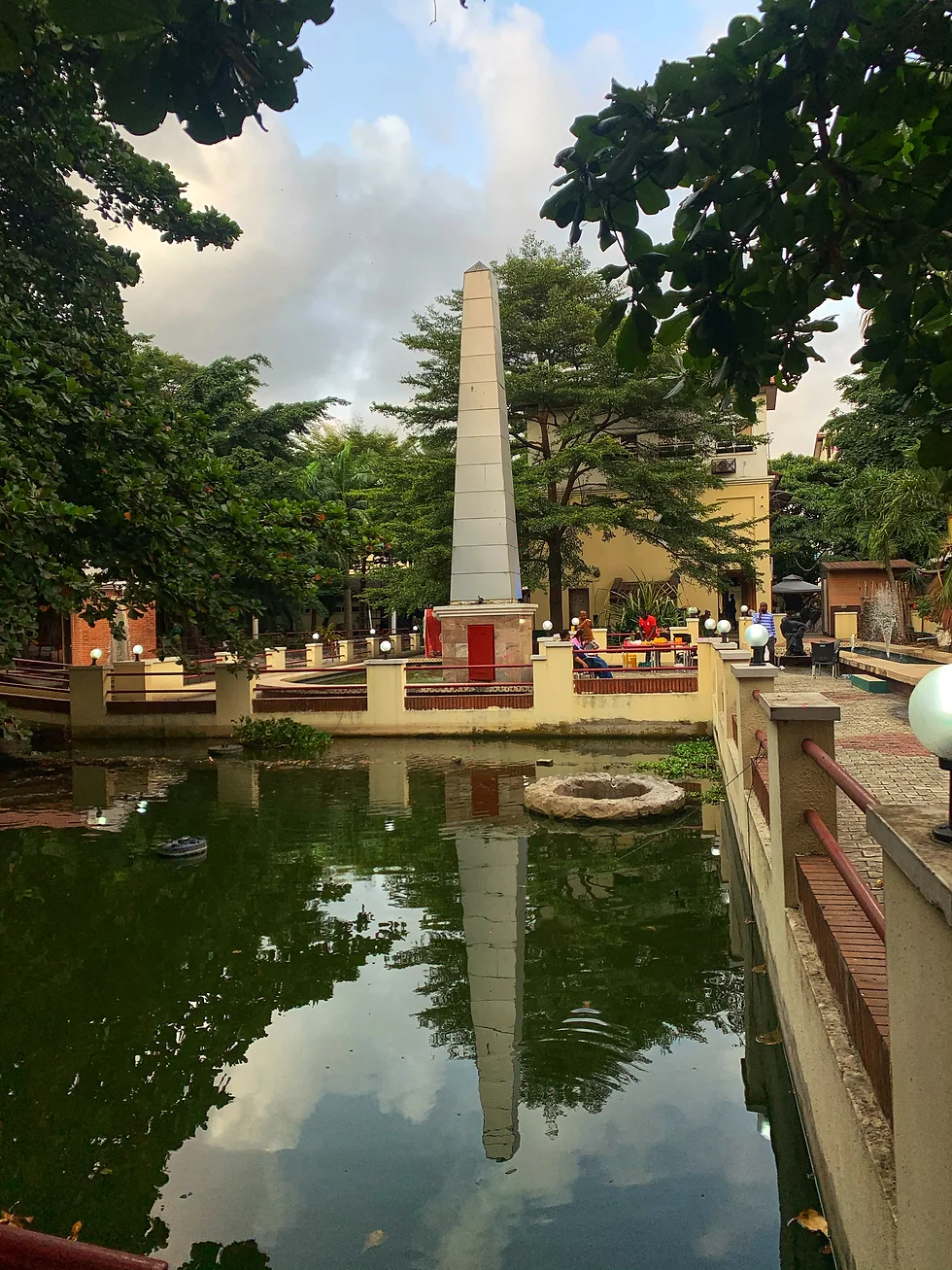
What to Expect:
- Historical Exhibits: The museum inside the park has old photographs, prison records, and artifacts that show what life was like in the Broad Street Prison.
- Prison Remains: Some parts of the old prison, such as prison walls, cells, and gates, are still there for visitors to see.
- Art and Culture: The park has many beautiful sculptures, paintings, and murals that tell stories about Nigeria’s past.
- Green Spaces and Relaxation: The park has beautiful gardens, fountains, and seating areas where visitors can relax and enjoy the peaceful environment.
📍 Old Prison Ground,1, Hospital Road, adjacent St’ Nicholas Hospital, Lagos Island, Lagos
Call Line: 0809 500 6567
4. National Museum Lagos
The National Museum Lagos is one of Nigeria’s most important cultural and historical sites. Located in Onikan, Lagos, it was established in 1957 and has since become a major center for preserving and showcasing Nigeria’s rich history, art, and cultural heritage.
The museum houses thousands of artifacts, artworks, and historical objects, telling the story of Nigeria from ancient times to the present day. It is a place where visitors can explore pre-colonial traditions, colonial history, and Nigeria’s journey to independence. Whether you are a history lover, a student, or a tourist, the National Museum Lagos offers a deep and fascinating look into Nigeria’s past.
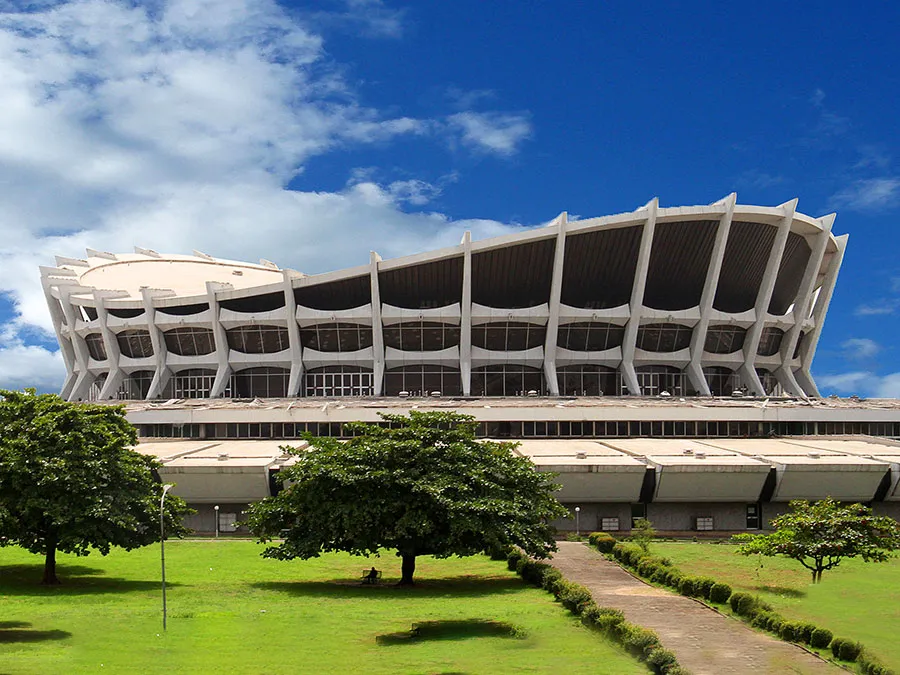
What to Expect:
- Benin Bronzes: Exquisite bronze sculptures from the Benin Kingdom, over 500 years old.
- Nok Terracotta Sculptures: Clay statues made by the Nok people, an ancient civilization that existed over 2,500 years ago.
- Ifẹ̀ Bronze and Stone Heads: Masterfully crafted bronze and stone heads from the Ifẹ̀ Kingdom, showing ancient Nigerian artistry.
- The Murtala Mohammed Bullet-Ridden Car Exhibit: The actual Mercedes-Benz car of General Murtala Mohammed, Nigeria’s former Head of State, who was assassinated in 1976.
📍 Onikan Rd, Ikoyi, Lagos 102273, Lagos.
Call Line: 12636005
5. Yemisi Shyllon Museum
The Yemisi Shyllon Museum of Art (YSMA) is one of the most remarkable art museums in Nigeria, located within Pan-Atlantic University, Lagos. Officially opened in 2019, it is named after Prince Yemisi Shyllon, a passionate art collector and philanthropist. The museum was established to preserve and showcase Nigeria’s rich artistic heritage, spanning from ancient traditions to contemporary expressions.
With over 1,000 artworks, YSMA holds one of the largest and most diverse collections of Nigerian and African art, making it a must-visit destination for lovers of history, culture, and creativity.
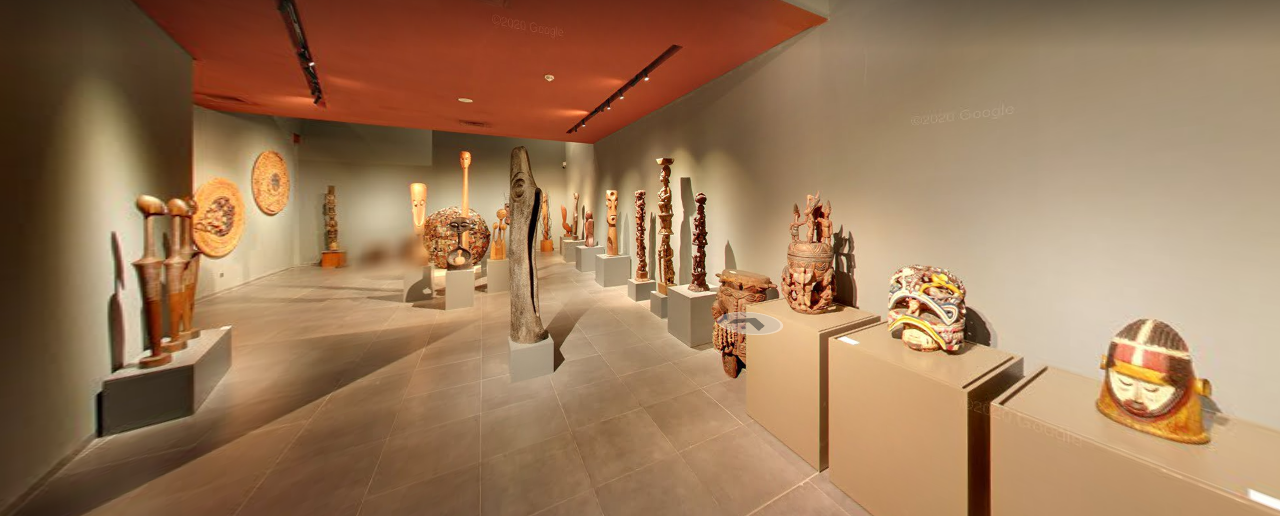
What to Expect:
- A stunning collection of Nigerian and African art: From traditional to contemporary works.
- Beautifully designed galleries with modern displays: Making it easy to explore and appreciate the artwork.
- Interactive digital art installations: Engaging visitors through modern technology.
- A peaceful outdoor sculpture garden: A perfect space for relaxation and artistic inspiration.
- Insightful guided tours: Helping visitors understand the deeper meanings behind the artworks.
📍 Pan-Atlantic University, Ibeju-Lekki, Lagos
Call Line: 09136012439
🌐 https://museum.pau.edu.ng/ , Instagram: (@shyllonmuseum)
Visiting museums is more than just a walk through history—it is an opportunity to connect with the past, appreciate cultural heritage, and gain a deeper understanding of our world. Each museum offers a unique experience, from showcasing ancient artifacts to telling powerful stories of resilience, creativity, and transformation.
Whether you are a history enthusiast, an art lover, or simply curious about the past, exploring these museums will leave you with valuable knowledge and a renewed appreciation for heritage and culture. The exhibits, guided tours, and interactive displays provide a memorable and educational journey for all visitors.
For more insights on museums, history, and cultural destinations, visit our website for detailed guides, travel tips, and exclusive updates. 🚀

